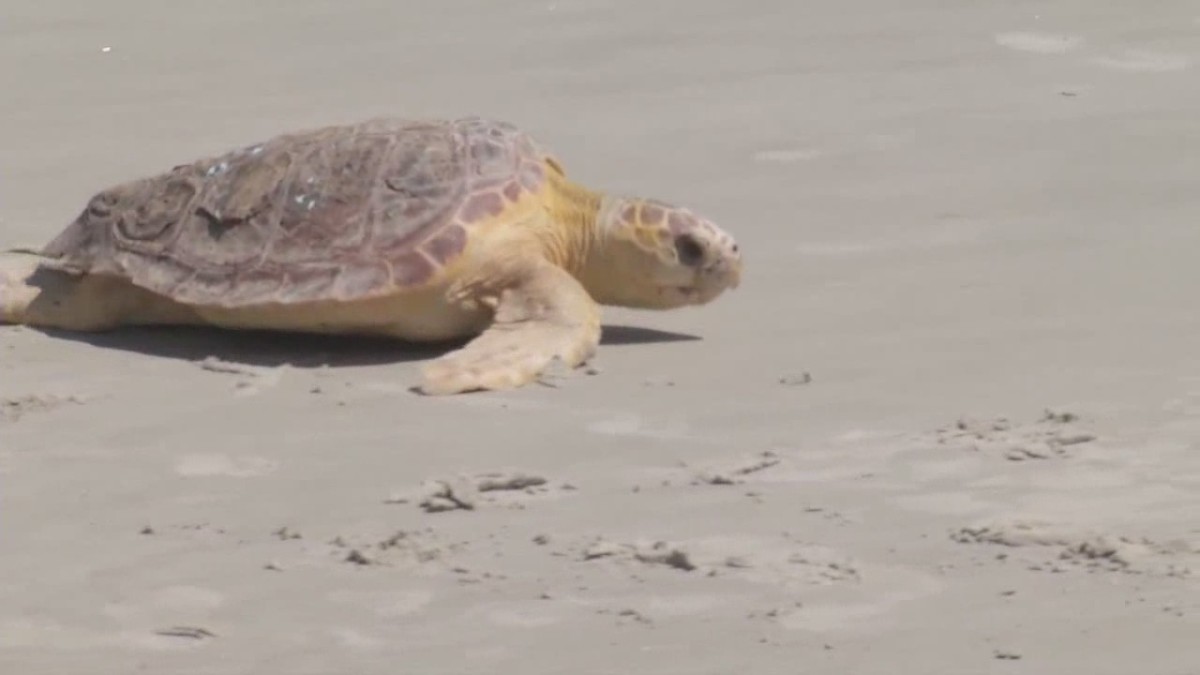The Tequesta man was caught July 1 stealing 107 Loggerhead Sea Turtle eggs at a Jupiter Island beach, taking them as fast as the mother turtle could lay them before she returned to the ocean.
Shaw didn’t tell officers with the Florida Fish and Wildlife Conservation Commission what he planned to do with the eggs, but it’s unlikely that he was going to eat them. More likely, he was going to sell them on a black market that has thrived for years in Riviera Beach and West Palm Beach, an FWC officer said.
That market would have paid him $3 to $5 per egg and $20 to $30 per dozen, FWC Capt. Jeff Ardelean said recently.
Shaw was charged with a third-degree felony and fined $10,700, which is $100 per egg, FWC spokeswoman Carol Lyn Parrish said, and 92 of the eggs Shaw stole were reburied. The black market, however, goes on, serving people from cultures that consider the eggs a delicacy.
For these groups, eating them is as natural as “Americans eating a turkey on Thanksgiving,” said Sarah Hirsch at the Loggerhead Marinelife Center in Juno Beach.
About one to two people are arrested in Florida each year for sea turtle egg poaching, Ardelean said, but he estimates tens of thousands of eggs are stolen from nests annually — a violation of the federal Environmental Protection Act.
“When we catch people on the beach stealing eggs, it might be the first time they are caught, but they most likely have done it ten times before that,” Ardelean said.
Before Shaw, the last documented arrest for poaching was James McGriff in 2014, who was caught with 299 turtle eggs on Hutchinson Island, Ardelean said. McGriff is a repeat offender who served three years in federal prison for selling 12 eggs to an undercover officer and possessing more than 300 pre-bagged eggs for sale in 2002.
In all, 42 cases of poaching — including Shaw’s — have been reported in Florida since 1980, according to a FWC document provided by Ardelean.
In the 1950s and ’60s, sea turtle poaching was legal in Florida before the EPA was established in 1970, making sea turtles an endangered species, Ardelean said. So families who ate turtle eggs before they became illegal see them as part of their culture. More specifically, Caribbean and Latin cultures consider sea turtle eggs as a delicacy, said Hirsch, a data manager for the research department at Loggerhead.
Some people like the eggs boiled and seasoned with salt and pepper, while others will throw them raw in a cup of beer and slurp them down, Ardelean said. Raw turtle eggs allegedly have a “musky” aftertaste and give consumers an “enlightened” feeling, he said. A 1980s advertising campaign in Mexico touted them an aphrodisiac.
In Latin American and Caribbean countries sea turtle eggs are poached in great numbers because of the lack of law enforcement, said David Godfrey, an executive director of the Sea Turtle Conservancy. For example, people will go to the beach in Ostional, Costa Rica, with friends and family to gather the eggs for drinks and even omelets, according to a news release from the Sea Turtle Conservancy.
Because of high surveillance on the beaches and strict law enforcement, the black market in Florida has made changes to how poaching is done, according to Ardelean.
“Before there used to just be diggers who would take the eggs and sell them themselves, but now there is a ‘middle man.’ ” said Ardelean. “With more pressure from law enforcement, dealers now have people to go dig the eggs for them.”
This “middle man” hires diggers to go out and search for the eggs, and in return they are paid per egg. In the months of June and July, nesting is in high numbers which makes it easier for the poachers to retain eggs.
“Diggers don’t even have to wait 30 minutes to spot a turtle laying their eggs,” said Ardelean.
Ardelean said the hired diggers mostly look for crawl marks and then use a stick to poke around in the ground. Once the stick has a “yolk” substance on it, they will search in that area for eggs.
When the middle man obtains the eggs from the diggers, they clean and sell them in containers by the dozens, Ardelean said.
The good news for sea turtles is that egg poaching does not affect their numbers in Florida. In fact, 2016 could be a record year for loggerheads, given the number of nests researchers have counted from Jupiter to North Palm Beach.
There is, however, a lingering threat that the black market could grow.
“With the growing demographic of Latinos in Florida, there is a potential concern for a growing demand for sea turtle eggs,” Godfrey said. “If more people come to Florida from Latin and Caribbean countries, it adds more pressure to the black market.”
But sea turtle nesting surveillance does not seem to be slowing down, FWC Officer Tyson Matthews said.
“We are always watching, waiting, and observing without people even knowing,” said Matthews.
Education about the dangers of poaching and its legal punishment could help Florida stop poachers during nesting season, Hirsch said.
“Poachers are going to do what they are going to do,” said Hirsch. “Our best bet is to educate people and show them there is a different way of life than poaching turtles.”
___
Information from: The Palm Beach (Fla.) Post, http://www.pbpost.com
Copyright 2016 The Associated Press. All rights reserved. This material may not be published, broadcast, rewritten or redistributed.


